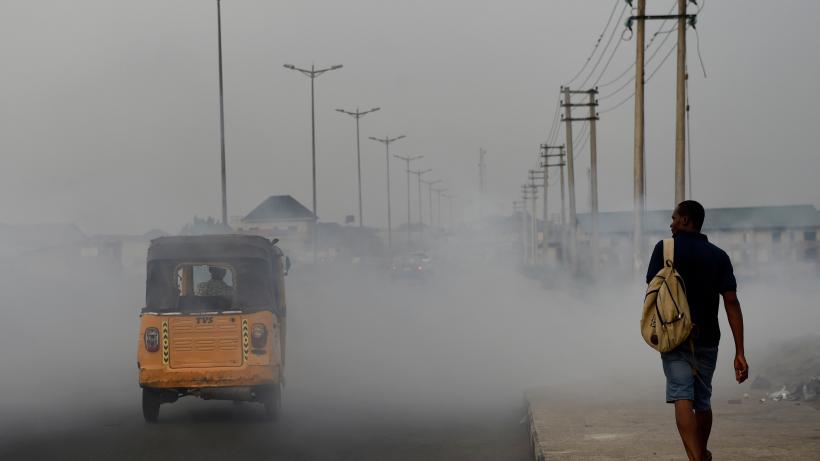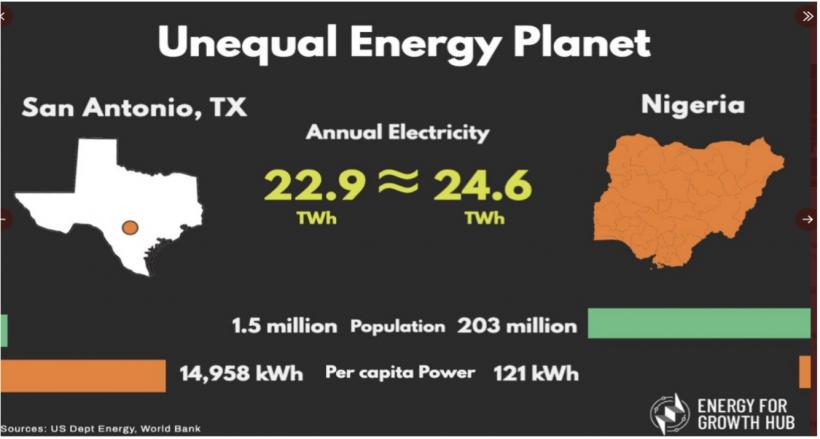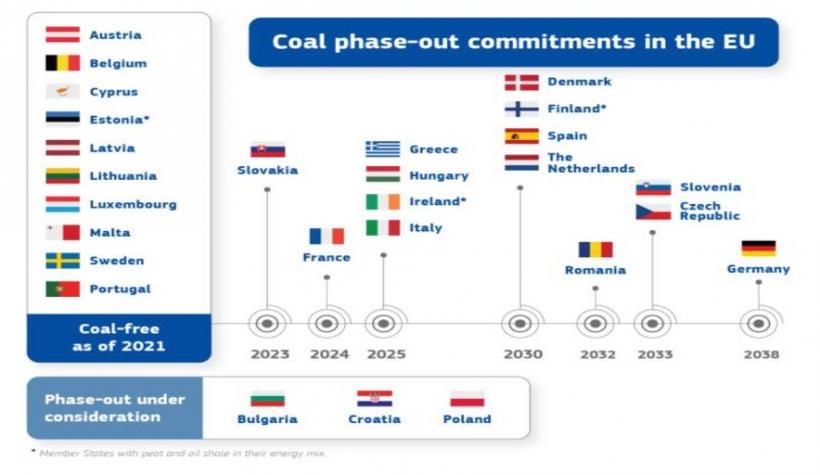
Can the world afford an increase in Africa’s share of global emissions?
Despite contributing the least to climate change, many African countries experience the brunt of its impacts, yet they may have to increase their share of global emissions whilst targeting climate change adaptation.
The UN Secretary-General characterises the main hurdle preventing collective and decisive climate action as a climate of mistrust. Beyond this mistrust, there was a growing sense of frustration among African leaders at the recently concluded COP27 in Egypt. The President of Nigeria – Mr Muhammadu Buhari expressed the frustration of African leaders towards the inability of wealthy nations to take responsibility for climate change and to keep the US$100 billion commitment to funding climate adaptation in the developing world. There is also disappointment that recent demands for compensation of loss and damages have been met with silence.
Although these sentiments are quite stern, they provide a useful basis for building trust and fostering compromise towards climate action. Africa urgently needs investment in adaptation infrastructure to avert climate disasters. Most global climate financing currently flows toward mitigation projects such as renewable energy projects. While this is useful, money is foremostly required for Africa to adapt to the effects of climate change.
Climate change adaptation in Africa
There is a growing understanding that climate change is no longer some distant probable event – it is here and now. Many countries are already struggling to cope with its ravaging impacts, be it floods in Nigeria, drought in Somalia, or rising sea levels devastating coastal communities in Ghana. Despite Africa’s low contribution to greenhouse gas emissions, the continent is most vulnerable to climate change. According to a recent Africa Development Bank report, 7 out of 10 of the most vulnerable countries to climate change are in Africa.
Climate action requires international collaboration and coordination, and so African countries must pursue responsible and just climate mitigation measures to keep the 1.5°C target within reach. One such measure is the example of Bangladesh, committing to not commissioning new coal-fired power plants as it seeks to expand access to electricity. To protect lives and livelihoods, Africa must urgently prioritise adaptation measures to stave off the immediate impacts of climate change. Climate change adaptation is an essential element of the Paris Agreement which involves adjustments to actual or expected climate change and its effects. It also includes investments to improve the resilience of infrastructure systems, such as storm drains, sea defence walls and restoration of mangroves.
The investment to improve the resilience of infrastructure systems to climate change is significant and estimated to reach US$140-300 billion in 2030 and US$ 280-500 billion by 2050. At the United Nations climate summit in Copenhagen in 2009, wealthier nations pledged to channel US$100 billion a year to developing nations by 2020. According to the UN Independent Committee on Climate Finance, this commitment of the wealthier nations is central to climate accords and is an important symbol of trust.
Unfulfilled climate change funding commitments
Since 2009, that trust has come under threat as wealthy nations failed to meet the US$ 100 billion climate finance goal. Precise estimations of the shortfall are a matter of disagreement. For example, the OECD reported that developed countries provided US$ 83.3 billion in climate finance to developing countries in 2020. However, Oxfam estimates the true valueof climate finance provided in 2020 is only a third of the reported amount (US$ 21–24.5 billion). The end result of this is a climate of mistrust and frustrations as implied by the Nigerian president.
Going forward, developed nations need to reaffirm their commitment to the US$ 100 billion pledge. Most importantly, there is a need to clarify and agree on what payments and investments count towards the US$ 100 billion pledge. For instance, should green private finance count?
Even though the loss and damage climate funding (as distinct from climate finance) has not received the needed traction, some countries such as Denmark are leading the way on their commitments. Although Denmark’s US$13 million pledge may pale in comparison to what is required, it does signal what is possible. With the return of more ideologically climate conscious leadership in the US, it should not be too much to expect that climate loss and damage compensation mechanisms can be worked out for the most climate-vulnerable nations.
The contradictions between climate change initiatives and actions
Another point of dissatisfaction for African leaders is the call for Africa to forgo gas exploration to avert climate disaster. As Mr Buhari put it “Don’t tell Africa that the world cannot afford the climate cost of its hydrocarbons and then fire up coal stations whenever Europe feels an energy pinch. Don’t tell the poorest in the world that their marginal energy use will break the carbon budget only to sign off on new domestic permits for oil and gas exploration.”
To be sure, Africa’s poverty is an energy poverty. Affordable and reliable energy is an immediate priority for Africa. For example, Nigeria – Africa’s largest economy and most populous country – consumes electricity on a scale of a mid-sized city in the developed world. No nation has prospered with Africa’s levels of energy poverty. The quest to alleviate poverty, to industrialise, and to create decent jobs necessarily requires steep increases in access to affordable, reliable, and secure energy on the continent.
Figure 1: Global energy use inequality

Notes: Global per capita energy usage is especially high in developed country cities when compared to entire African countries as illustrated in the example of Nigeria and San Antonio.
But will it be responsible for Africa to power industries with its natural gas reserves? To address this question, we ought to realise that climate crisis is an economic crisis even for Africa. The challenge is to ride both crises simultaneously, recognising that first best options may not necessarily be feasible or even prudent particularly in a geopolitical environment with heightened concern for energy security.
Reading the views expressed by African leaders at the COP27, it appears it is economically and politically unfeasible for Africa to commit to not exploiting its natural gas reserves. Leaders will find it difficult to justify such a commitment especially as the rest of the world continues to exploit and prosper on the back of hydrocarbons.
Transitioning towards cleaner energy: making compromises
The transition path from fossil fuel is littered with self-interests, contradictions, and collective action problems, which effectively render first best options unfeasible in the near term. There are, however, at least two indicators of good, but not best, practice to guide the way forward. First, the referenced recent increase in coal-fired power generation across Europe does not appear to be a permanent policy shift. It is likely that coal-fired power generation in Europe will fall with the cessation of the Russian-Ukraine war. Prior to the Russian-Ukraine war, coal power generation in Europe was on the decline. An affirmation of the commitment and progress towards the timelines to phase out coal in Europe and other coal-dependent countries will be an important step forward.
Figure 2: EU commitments to phase-out coal

Notes: This highlights the targeted timelines for phasing out coal across the EU with some dates as early as 2023 and 2024 (Slovakia and France) while others go all the way to 2038 (Germany).
The second positive indicator (again not the best option) is that not all fossil fuels are the same. Natural gas emits approximately 50% less carbon dioxide than coal. On 15 July, 2022, the African Union’s Executive Council adopted a common position on energy access and just energy transition. The common position made it clear that natural gas will play a crucial role in Africa’s energy mix in the short to medium term while enhancing the uptake of renewable energies in the long term. Other leaders share a similar position with the Nigerian president emphasising that “Africa’s future must be carbon-free but current energy demands cannot yet be met solely through solar and wind power”.
The position of the African Union and African leaders signals a common position on what is desired in the long-term and what is feasible in the medium- and short-term. This presents an important opportunity for the concession and compromise needed in the near term. International Energy Agency (IEA) estimates suggest if Africa, a continent with close to 17% of the world’s population, were to use all its known natural gas reserves, its share of global emissions would rise from 3%to 3.5%. In the interest of fair opportunities to grow, can the world accommodate an increase in Africa’s share of global emissions to 3.5%?

